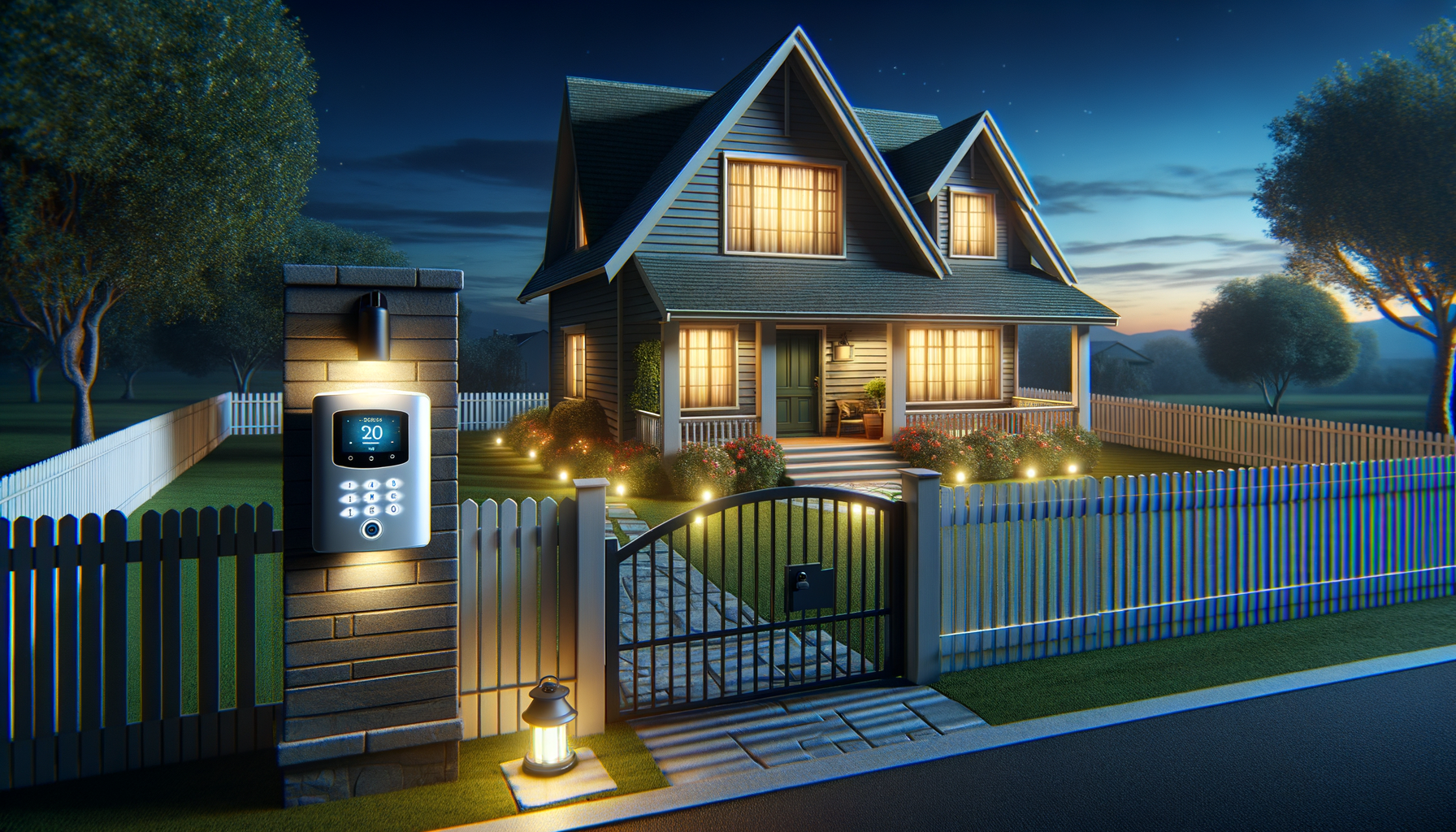Understanding the Importance of Home Security
In today’s world, ensuring the security of one’s home is more crucial than ever. With increasing concerns about burglary and property damage, having a reliable home security system is not just a luxury but a necessity. Home security systems are designed to protect your home and family from potential threats, offering peace of mind whether you are at home or away.
Statistics show that homes without security systems are up to 300% more likely to be broken into. This highlights the importance of investing in a system that can deter criminals and alert you to any suspicious activity. Moreover, modern security systems come equipped with advanced technology, providing real-time monitoring and quick responses to any potential threats.
Beyond preventing break-ins, home security systems also help in monitoring fire, gas leaks, and other emergencies, ensuring a comprehensive safety net for your household. This all-encompassing approach to safety makes them invaluable assets for homeowners.
Exploring Different Types of Home Security Systems
When it comes to home security, there are several options available, each catering to different needs and preferences. The most common types include alarm systems, surveillance cameras, and smart home integration.
Alarm systems are a staple in home security, known for their ability to alert homeowners and authorities of any unauthorized entry. These systems can be wired or wireless, with the latter offering easier installation and flexibility.
Surveillance cameras, on the other hand, provide visual monitoring of your property. With advancements in technology, many cameras now offer high-definition video, night vision, and motion detection capabilities. Some even allow for remote viewing via smartphones, ensuring you can keep an eye on your home from anywhere.
Lastly, integrating your security system with smart home technology can enhance its capabilities further. Features like smart locks, video doorbells, and automated lighting can work together to create a seamless and efficient security network.
Benefits of Investing in a Home Security System
Investing in a home security system offers numerous benefits that extend beyond just protection. One of the primary advantages is the deterrence of crime. The presence of a security system is often enough to discourage potential intruders from targeting your home.
Another significant benefit is the potential reduction in homeowners’ insurance premiums. Many insurance companies offer discounts to policyholders who have installed security systems, recognizing the reduced risk of theft and damage.
Moreover, modern security systems provide convenience and control. With features like remote access, homeowners can manage their security settings, receive alerts, and monitor their property from any location. This level of control ensures that you are always connected to your home, no matter where you are.
Lastly, the peace of mind that comes with knowing your home is protected is invaluable. A home security system provides a sense of safety and reassurance, allowing you to focus on what truly matters.
Factors to Consider When Choosing a Home Security System
Choosing the right home security system involves considering several factors to ensure it meets your specific needs. One of the first things to assess is the size and layout of your home. Larger homes may require more extensive systems with multiple cameras and sensors to cover all areas effectively.
Another important factor is your budget. Home security systems can range from basic setups to comprehensive packages with advanced features. It’s crucial to find a balance between affordability and the level of protection you desire.
Additionally, consider the type of monitoring you prefer. Some systems offer professional monitoring services, where a team is available 24/7 to respond to alerts. Others may provide self-monitoring options, which can be more cost-effective but require more involvement from the homeowner.
Lastly, think about the integration capabilities of the system. If you have existing smart home devices, ensure the security system you choose is compatible and can seamlessly integrate to enhance your home’s overall security.
Future Trends in Home Security Technology
The field of home security is constantly evolving, with new technologies emerging to enhance protection and convenience. One of the most exciting trends is the integration of artificial intelligence (AI) in security systems. AI can analyze patterns and detect unusual activities, providing more accurate and timely alerts.
Another trend is the adoption of smart home ecosystems, where security systems are part of a larger network of connected devices. This integration allows for automated responses, such as locking doors or turning on lights when a security breach is detected.
Biometric technology is also gaining traction, offering an additional layer of security. Fingerprint scanners and facial recognition systems can provide secure access control, reducing the risk of unauthorized entry.
Lastly, the use of drones for home security is being explored. These devices can patrol larger properties, providing aerial surveillance and covering areas that traditional cameras might miss.
As these technologies continue to develop, the future of home security looks promising, offering homeowners even more robust and efficient ways to protect their properties.




Leave a Reply